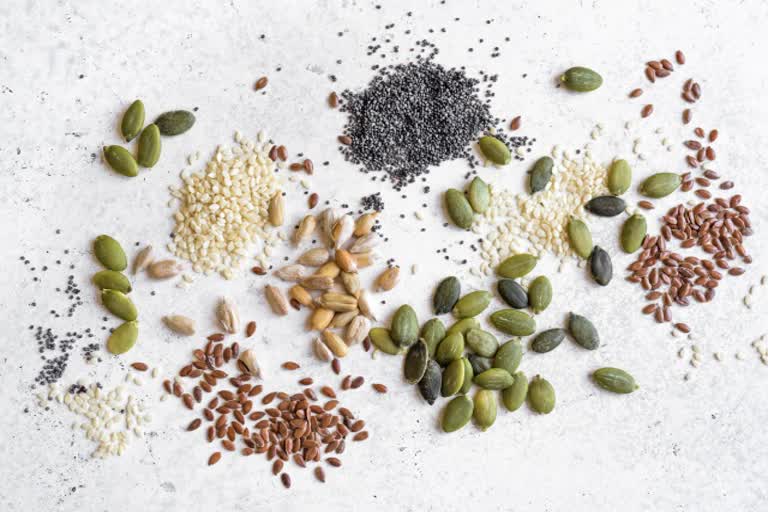In recent times seeds have gained a lot of popularity and are finding their way again into culinary preparations because of their high nutrient value. Though minuscule in size, seeds add flavor and crunch to our daily meals, from breakfast to desserts, biscuits to salads, they are extremely versatile and can be incorporated easily into a variety of different recipes.
ETV Bharat Sukhibhava spoke to Dr. Kruti S. Dhirwani, M.D. (Hom.), M.Sc. (DFSM), is a Consulting Homeopath and Clinical Nutritionist practicing at Sunshine Homeopathy Clinic, Mumbai for some interesting insights
Seeds are a great source of fiber, protein, and monounsaturated and polyunsaturated fats along with important vitamins, minerals, and antioxidants. Here are details of few seeds and the nutrient value they possess:
FLAX SEEDS
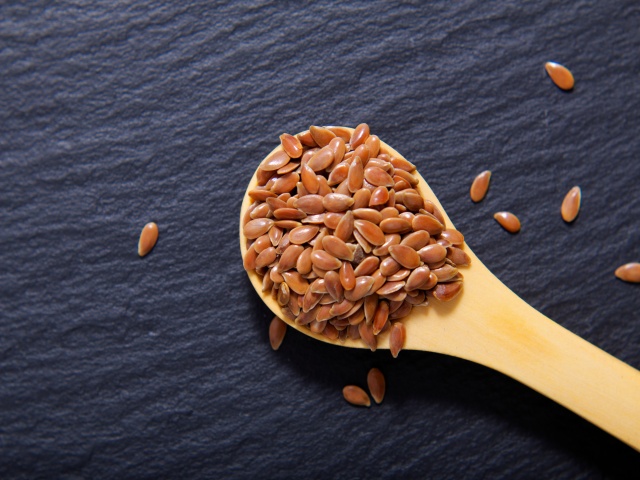
Flaxseeds are extremely popular among Indians looking to keep healthy because of their great protein power and high amount of fibre. Apart, from protein and fiber, they are a great source of omega-3 fats, particularly alpha-linolenic acid (ALA).
Adding flaxseeds to your diet boosts immunity, increases muscle and bone development, and reduces fatigue.
One tablespoon (10 grams) of whole flaxseeds can be added to almost any food, you can add it to your porridge, salad, cookies/biscuits, or mix it to your soup.
Flaxseeds may cause mild digestive issues. They contain plant compounds that may adversely affect some people and are not considered safe for high-dose consumption in early pregnancy.
NIGELLA SEEDS
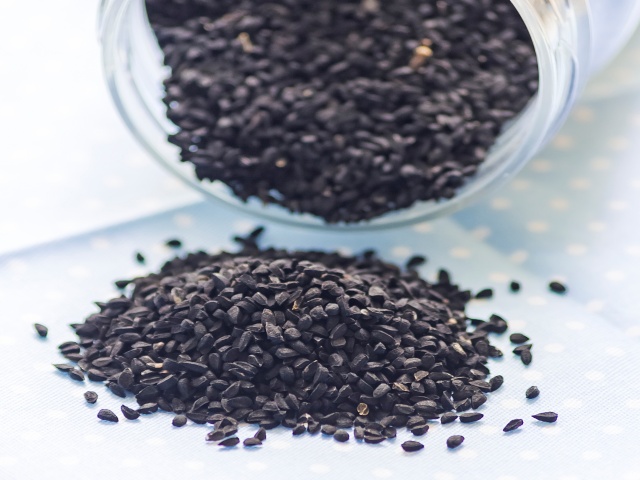
Nigella seeds or kalonji are known for their diverse culinary uses and medicinal properties.
Traditionally used to treat a variety of ailments, kalonji has been associated with a wide range of health benefits. Flavour and aroma aside, these tiny black seeds come loaded with trace elements, vitamins, amino acids, saponin, crude fiber, proteins, and fatty acids like linolenic and oleic acids, volatile oils, alkaloids, iron, sodium, potassium, and calcium.
Having 1-3 grams of Nigella seeds (1 teaspoon) can help:
- Fight Acne
- Keep a Check on Blood sugar levels
- Increase Memory and Alleviates Asthma
- Weight Loss
- Easing Joint Pain
- Lower Blood Pressure
- Strengthen Immunity
Kalonji is safe for most people and when taken in small quantities does not possess any side effects. However, when taken in larger amounts it can lower blood pressure and sugar levels which may pose a risk to life. Also, nigella seeds can stimulate uterine contractions and may affect the health of the foetus, so pregnant women are suggested to avoid it.
PUMPKIN SEEDS
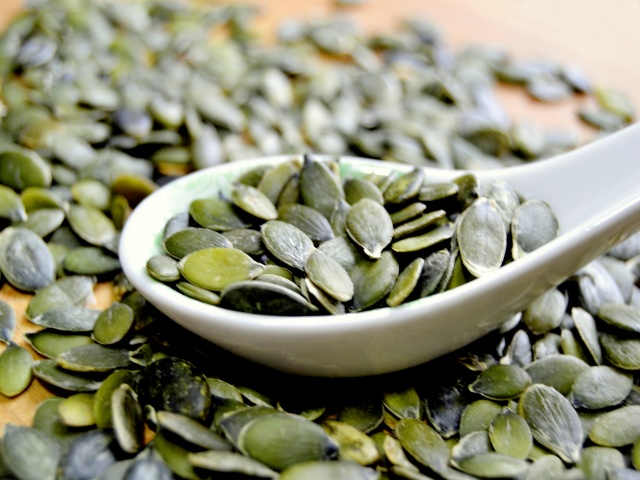
Pumpkin seeds are a good source of monounsaturated and omega-6 fats and other essential vitamins and minerals. They possess antimicrobial properties and offer numerous health benefits that range from improved brain development, improved liver health, improved heart health, and symptoms of urinary disorders.
Fresh roasted pumpkin seeds are a tasty snack that boasts 16% of your daily iron needs and 5 grams of fiber in just ¼ cup.
Most people eat raw or roasted pumpkin seeds in moderation without experiencing negative side effects but eating a lot of pumpkin seeds at once may cause constipation and weight gain.
CHIA SEEDS
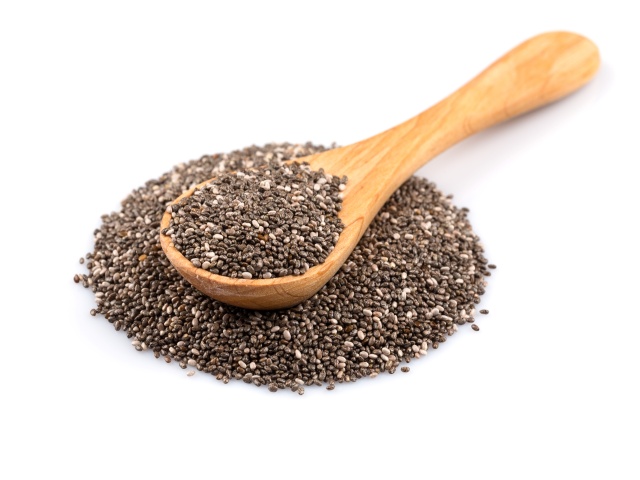
Chia seeds have gained a lot of popularity in India in recent years. And it’s all for good reason. The tiny seeds are called a `superfood’ as they are packed with high amounts of fibre, omega-3 fatty acids, zinc, proteins, and other minerals. 1-gram chia seeds have 8 times more omega-3 than salmon, 3 times more iron than spinach, and 5 times more calcium than milk!
Chia seeds come in two varieties - black and white. The black seeds are whole seeds and are good to consume as they are not dehusked.
Soaking chia seeds in water enables them to absorb 9 times water of their own weight and turn into a gel. You can add this gel to all your food including cereal, cookies, milkshakes, salads, and various other dishes
Be careful not to give raw, unsoaked, and uncooked chia seeds to children as eating them raw can cause digestion troubles.
WATERMELON SEEDS
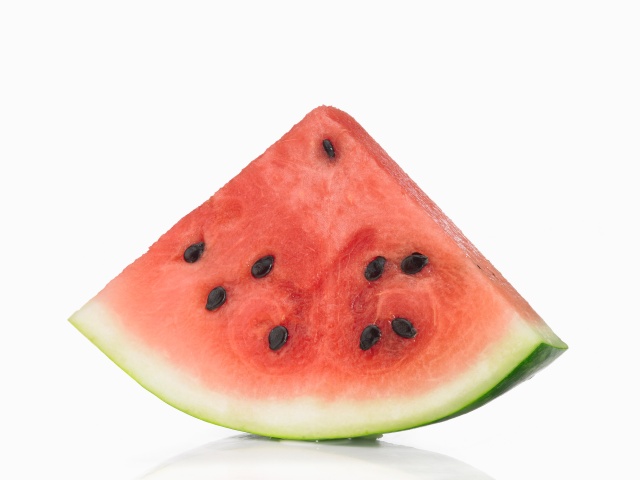
They are the most ignored seeds; before you throw them away the next time, remember they are rich in magnesium and iron. Melon seeds are also rich in protein and amino acids that strengthen hair. They make for a great low-calorie, protein-rich snack.
The best way to consume them is by roasting them. You can add some salt and olive oil and bake them in an oven. About ½ cup of watermelon seeds can be safely consumed in a day.
Watermelon seeds are easily digested by the human digestive tract and are not known to have any major side effects. They are also naturally low in sodium and sugar however, due to their high mineral content, anyone who is on low potassium, magnesium, or phosphorous diet is advised to consume limited amounts of these seeds.
For your queries, contact namaste@drkrutidhirwani.com
